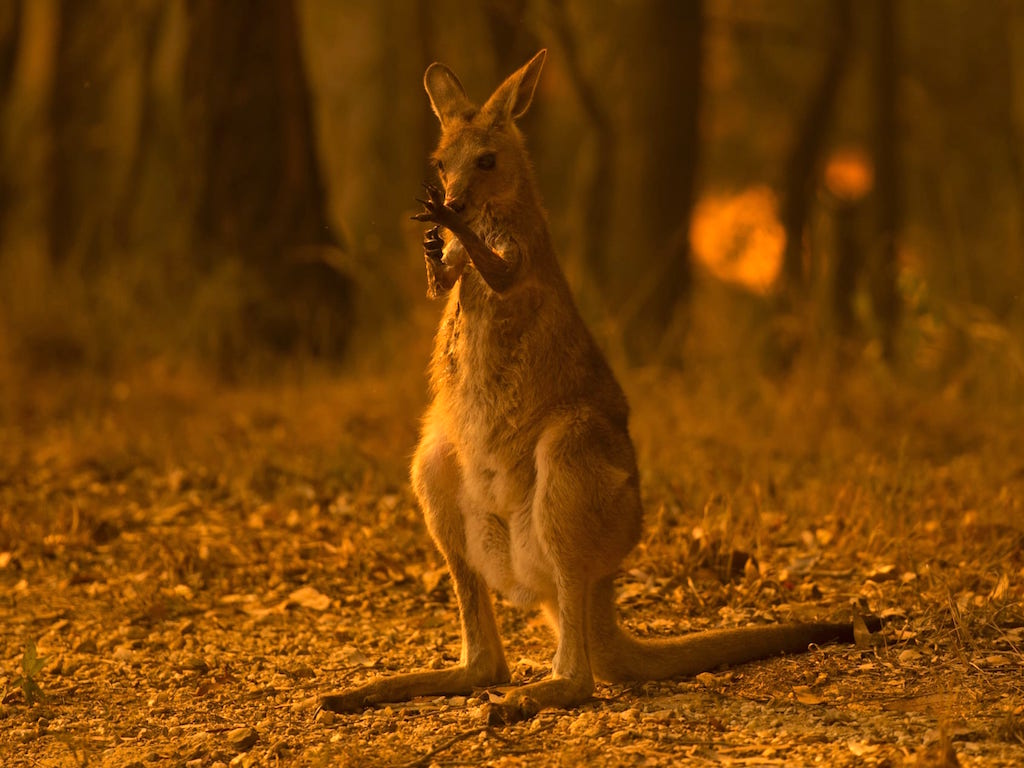3 Mins Read
The death toll of the Australian wildfires has gone up again, with experts now predicting that over 1 billion animals may have been killed. Wildfires have ravaged through the country since September and have escalated over the holiday season to burn across nearly 20 million acres of land, forcing thousands to flee their homes and claimed the lives of at least 25 people. The latest figure showcases the detrimental and deadly consequences of ignoring the climate crisis, the most pressing issue facing our planet today.
Experts at the World Wildlife Fund (WWF) in Australia now predict that as many as 1.25 billion animals may be killed directly or indirectly from the wildfires that have turned Australia into an apocalyptic nightmare. This is a major step up from their initial estimate that half a billion animals’ lives would be claimed. The new figure is calculated via methodology that takes into account the impact of land clearing on Australian wildlife and species population data from the University of Sydney.
“As massive areas of native bushland, forests and parks have been scorched…Over a billion would be a very conservative figure,” said WWF Australia environmental scientist Stuart Blanch.
The fires, which have been burning since September last year, have already killed 25 people, destroyed over 2,000 homes and scorched an area of land larger than twice the size of Belgium. They have been exacerbated by drought and the country and the world’s hottest and driest year on record in 2019, testament to the devastating impact of our global climate emergency.
With the updated figures of the death toll of animals, the wildfires threaten to wipe out entire species of animals. Images on social media have depicted set-alight koalas, kangaroos running away from blazes and hundreds of bodies of dead wallabies and wombats charred on the ground. Australia’s biodiversity is already reeling from having the highest rate of extinction globally. Ecologists and environmentalist activists have for months urged for more action on climate change in order to avoid unprecedented disasters and curb the already massive environmental impact of the Australian wildfires.
While 3,000 military personnel have been deployed to fight the fires, the world has been left to wonder why the action taken by the Australian government came so late, after the Australian prime minister cancelling the emissions reduction department and took a family vacation to Hawaii before cutting it short.
Globally, there is a lesson to be learned to all governments around the world: leaders must step up now or risk climate suicide. While news about the climate crisis have been making headlines repeatedly since the new year took off, much of it due to the attention garnered by the fires in Australia, it is vital that governments, businesses and individuals take urgent collective action to fight what is now threatening the planet, animals and our very existence.
Take action now. The Red Cross are currently looking for donations to help Australia amid the wildfire crisis. Every single donation, no matter how small, can make a difference. Donate here.
Lead image courtesy of Wolter Peeters / Fairfax Media / Getty Images.




